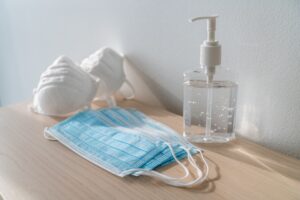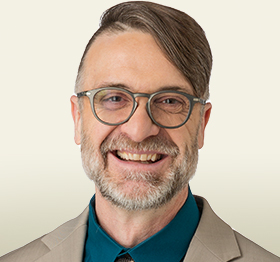Does Cancer put me at higher risk for COVID-19?
If you have cancer currently, your body is probably more susceptible to COVID-19 infection and more likely to become seriously ill from COVID-19 if you get it. This appears to be true whether you’re currently receiving cancer treatment or not. Having a previous history of cancer that’s either in remission or cured doesn’t appear to carry the same risk.
How is COVID-19 transmitted?
If you have cancer currently, your body is probably more susceptible to COVID-19 infection and more likely to become seriously ill from COVID-19 if you get it. This appears to be true whether you’re currently receiving cancer treatment or not. Having a previous history of cancer that’s either in remission or cured doesn’t appear to carry the same risk.v
Are masks helpful?
Masks reduce (but do not completely eliminate) the number of droplets expelled by people when they breathe or speak. They also appear to reduce (but not completely eliminate) the number of droplets you inhale from others. The type of mask, how tightly it fits, and its condition affects how well (or poorly) it does all these things. Single-layer cloth masks provide the least protection, and professionally-fitted N95 masks provide the most protection.
Should I be wearing a mask? 
If you live in an area with a high rate of active COVID infection, wearing a mask while indoors with other people is recommended whether you’re vaccinated or not. But if you’re vaccinated and the area you live in has a low rate of active COVID infections, then wearing a mask while indoors with others probably isn’t necessary.
Should I take the vaccine?
Yes.
Should I still get the vaccine even if I’ve had COVID-19 before?
Yes.
Is the vaccine dangerous?
There appear to be very few short-term risks. Though longer-term risks won’t be clear for some time, nothing in how the vaccine is made (or what it’s made from) is thought to pose significant long-term dangers to humans.
Should I prefer one vaccine manufacturer over another?
At present, all the provisionally-approved vaccines are reasonably effective and reasonably safe against COVID-19. There are some slight differences among them in the exact degree of protection and also in the potential side effect profile, but the differences seem very small. It’s unclear at this time if there are differences in the long-term protection provided by the different vaccines.
Can the vaccine make me sick?
Most people experience a few days of inflammatory symptoms (e.g. fatigue, fever, soreness) after any vaccine of any kind, and the COVID-19 vaccine is no exception. Though serious illness and death from the COVID-19 vaccine do occur (as they do with all vaccines), these severe bad effects are extremely rare.
Can I still get COVID-19 if I get the vaccine?
Yes, but the risk you’ll get it (or get seriously ill from it) will be much lower if you’re vaccinated.
Will the vaccine still work if I have cancer or am getting chemotherapy or radiation therapy?
If you’re on any medications that suppress your immune system (such as steroids, immune suppressants, and many cancer chemotherapies) then the vaccine may be less effective–but it still appears to offer significant protection, as post-vaccination infection rates in at-risk individuals are low, and vaccinated individuals who do get COVID anyway seem to have a much lower rate of severe illness resulting from the infection.
Should I be concerned about the Delta (and other) variants?
Every living thing is constantly growing and adapting and viruses are no exception. We have to remember that new variants (or entirely new viruses) might rewrite the rules at any time–just like COVID-19 did in 2020. So yes, new variants are a concern and could change the rules for what’s safe (and what isn’t). It isn’t yet clear how effective the current vaccines are against the DELTA variant, or whether previous COVID infection offers any protection from it.
Why do the recommendations keep changing? Why can’t the experts get it right?
There was a time in history when “the facts” were that the earth was the center of the galaxy. But as we learned more, we had to admit our initial impression was wrong and that the earth in fact orbits the sun. An honest expert who weighs new data as it comes in will very often have to admit that things aren’t as we initially thought. With COVID-19 for instance, airborne transmission wasn’t initially thought to be important so masks weren’t recommended – but a lot of unhelpful things like scrubbing public surfaces regularly were. We’ve learned more since then, and have had to change our thinking. Having to change our minds is often a sign that science is doing its job well, and providing new knowledge at a fast rate.
Should I be afraid?
Though we think it’s unwise to live without sensible precautions and without regard for a global pandemic that’s taken millions of lives, we also think it’s unwise to live paralyzed by fear. Humans should never expect permanent health or freedom from all illness, but we shouldn’t lose sight of how fortunate we are. Our world has significant hazards, but our society suffers less from premature illness and death than any humans in history ever have. Many of our most common ailments are the result of excess, rather than deprivation.
TRUSTED SOURCES:
- Centers for Disease Control & Prevention
- Wisconsin Department of Health Services
- Michigan Department of Health & Human Services
- American Cancer Society
HEALTH SYSTEM INFORMATION:



